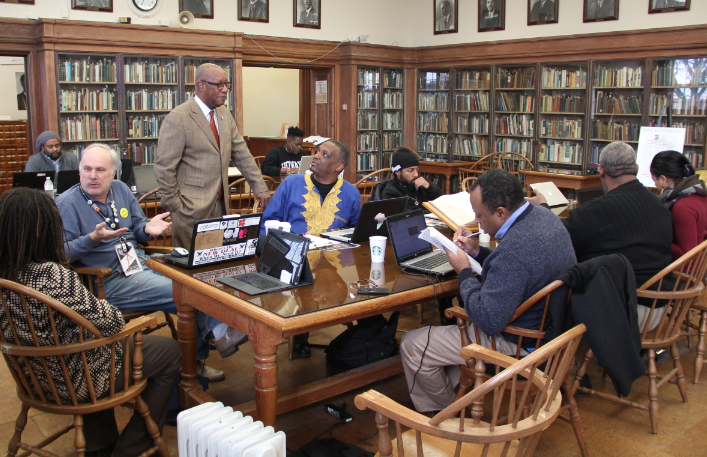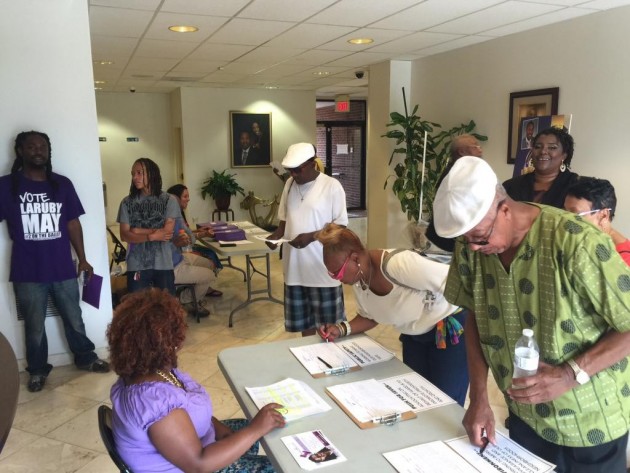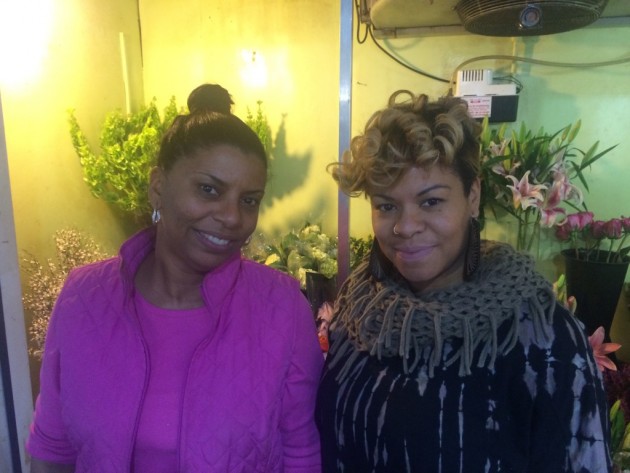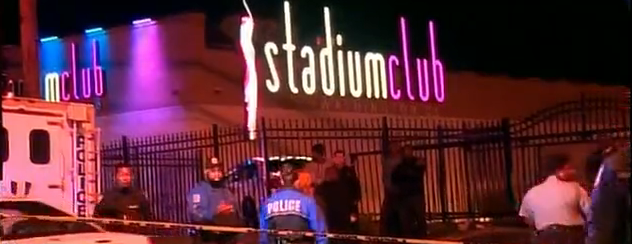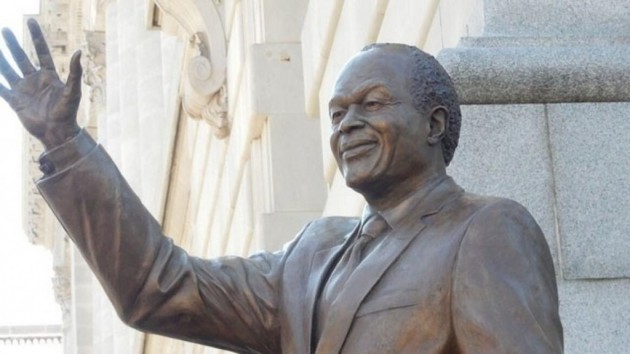
Howard University hosts a Wikipedia "edit-a-thon" to shape up pages of African-American figues.
WASHINGTON – Though he was the first African American with a doctoral degree in educational psychology as well as an editor of the Journal of Negro Education for 30 years, Charles Henry Thompson’s page on Wikipedia didn’t show much.
It didn’t include his rich background of innovation and scholarship or even photograph. Instead, it was a mere two sentences.
That remained the case until Howard University students and faculty gathered at the Moorland-Spingarn Research Center February 19 to rewrite his description and show others how to do the same for other important African American figures.
It was called an “Edit-a-thon.” Howard educators, historians and students came together to fill in gaps and add extensive information for significant African-American figures.
“When there are major historical and cultural figures that are not there, we've done them a disservice,” said Howard Dodson, the director of the Spingarn Center who also served as an editor for the day.
Dodson was contacted in November by Wikimedia D.C., a regional branch of the foundation that operates Wikipedia and focuses on advancing its knowledge through the help of universities, libraries and museums. The foundation wanted Howard University’s help in advancing Wikipedia’s inclusion of more African Americans.
“Wikipedia is like the gold standard in the world right now of encyclopedias,” Dodson said. “So, certainly when people go online looking for information about virtually anything, Wikipedia is one of the sources they rely on very heavily, and relatively speaking, a very small percentage of the entries deal with the black experience.”
After an editing tutorial, the Howard team researched pages that needed sprucing up, gaps that needed filling and photos that needed placing.
While some gathered reference materials from the wide collection in Spingarn, others knew valid information from first-hand experiences with certain important African-American figures.
“I think the reason Howard is [ideal] is because we go to Wikipedia with knowledge,” said Greg Carr, the chair of Afro-American Studies at Howard. “We’re not coming looking for knowledge. When you combine that with the holdings of Moorland Spingarn, then it makes it easy.”
Carr personally knew prominent figures who were missing information, such as Jacob Carruthers, one of the first blacks to integrate the University of Texas law school and play an integral role in the U.S. Supreme Court case Sweatt vs. Painter, and John Henry Clarke, a historian and advisor to Malcolm X.
Carr said his library of nearly 40,000 books and other resources will be used as the Howard staff and others continue to process begun Thursday.
“I think it was important, because what this signals is that Howard is now engaged and that this is a beginning,” he said. “What I hope will happen is that a network of black institutions will join Howard. This is an opportunity for us to collaborate.”
Dodson suggested the “edit-a-thon” become an annual event and that it could also benefit as a classroom project, serving as a learning tool and possible catalyst to teach black history to Wikipedia’s global audience.
Though the digital encyclopedia raises questions in terms of veracity for many scholars, it makes readers aware of the existence of information that leads to further research, Dodson said.
“For young people especially, if it doesn't show up in an Internet search, the perception is that it doesn't exist, or it's not important,” he said.
James Hare, president of Wikimedia D.C., said third-party and reliable resources, such as published books, journals and newspapers, is how Wikipedia prefers to gain its credibility. Its goal is to summarize existing research rather than to publish novel research on its own, Hare said.
Hare said Howard helped improve such credibility, and he “would like to work with Howard University more, especially in regards to topics in black history that aren’t as represented on Wikipedia.”

